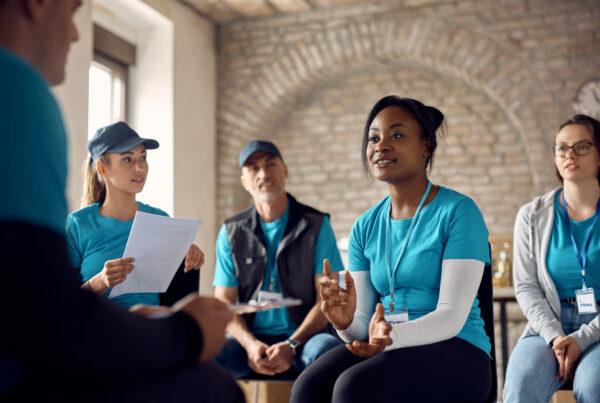
The journey of addiction treatment is one of evolution and growth, with methods and philosophies shifting to meet changing societal needs and scientific understanding. Knowing this history provides essential context for those in community service worker training, shedding light on how past approaches have shaped current practices.
This blog post explores the development of addiction treatment and how it informs today’s work in addiction and community service.
Early Approaches: Moral Models and Isolation
In the 18th and early 19th centuries, addiction was viewed through a moral lens. Individuals with addictions were often seen as lacking willpower or moral character, and treatment largely involved isolation. This approach typically placed people in asylums or “inebriate homes” where they were removed from society but received little actual support for overcoming addiction.
Treatment was limited, often punitive, and focused on containment rather than rehabilitation.
This era is a stark reminder of the importance of compassionate, evidence-based approaches in today’s field. Community service and addictions workers play a vital role in advocating for empathetic, non-judgmental care for those struggling with addiction.

A Community service and addictions worker advocates for empathetic, non-judgmental care
The Rise of Medical and Psychological Models
The early 20th century marked a significant shift with the introduction of medical and psychological perspectives on addiction. Instead of solely moral failure, addiction began to be understood as a medical condition with physical and psychological components.
The development of Alcoholics Anonymous (AA) in 1935 represented a groundbreaking approach, advocating for peer support, personal accountability, and a step-by-step recovery process. The AA model helped shift public perception and paved the way for other support programs.
This era also saw the rise of psychoanalytic approaches, with addiction understood as stemming from unresolved psychological issues. Therapies aimed to explore these deeper mental conflicts, further broadening the scope of addiction treatment.
Introduction of Medication-Assisted Treatments (MAT) and Behavioural Therapy
The 1950s and 1960s saw major advances in addiction treatment, including the introduction of methadone maintenance therapy for opioid addiction. The availability of medications like methadone gave rise to Medication-Assisted Treatments (MAT), which are still widely used and have been proven effective in managing withdrawal symptoms and reducing relapse.
Behavioural therapy also gained traction, focusing on understanding and modifying the behaviours associated with addiction.
These treatments reflect the integration of science-based approaches that continue to shape addiction support work today. For students in community service worker training, understanding the role of MAT and behavioural therapy is crucial in assisting clients through a holistic, informed approach.
Modern Approaches: Comprehensive and Holistic Care
Today’s addiction treatment approaches are comprehensive, addressing the physical, psychological, and social aspects of addiction. Cognitive Behavioral Therapy (CBT) and motivational interviewing have become mainstays in therapy, focusing on empowering individuals to understand and change their behaviour. Additionally, treatment now often involves a blend of MAT, counselling, community support, and relapse prevention strategies.
Holistic models have emerged, considering factors such as employment, housing, and mental health as integral to recovery. This person-centred approach is central to the role of a community service and addictions worker, who supports clients through case management, counselling, and resources that address all facets of life affected by addiction.

Modern addiction treatments are holistic, as explored in community service worker training
Launch Your Career With our Career College’s Community Service Worker Training
AOLCC’s 51-week Community Service and Addictions Worker Diploma Program at our career college provides a comprehensive foundation for aspiring community service and addiction workers. Reach that moment where compassion meets purpose as you prepare for impactful roles in healthcare, social assistance, youth centers, family services, and addiction treatment.
Covering essential topics like psychology, mental health, addictions, and ethics, AOLCC’s curriculum blends theory with a 160-hour hands-on placement. Graduates leave ready to make a difference, equipped with the skills and compassion to support recovery journeys and succeed in a rewarding career.
Are you ready to begin a new chapter in your journey?
Your career awaits!






